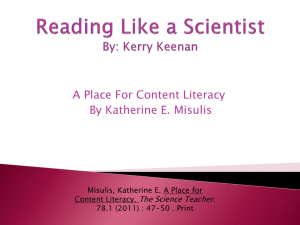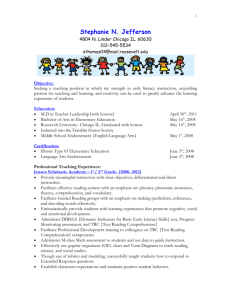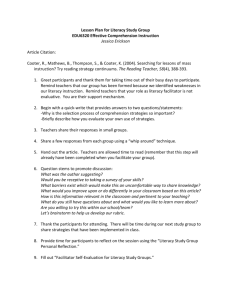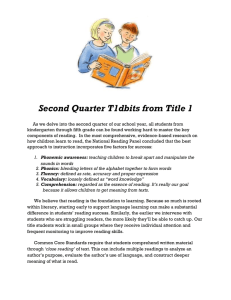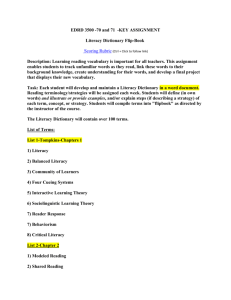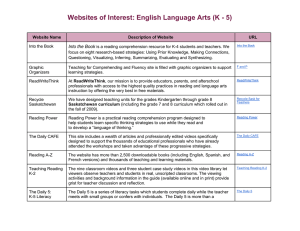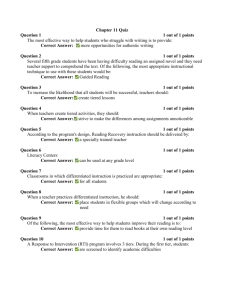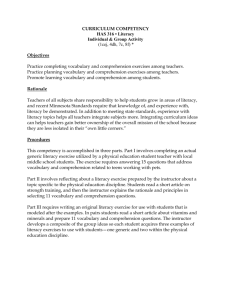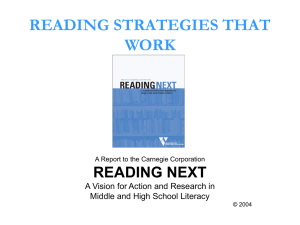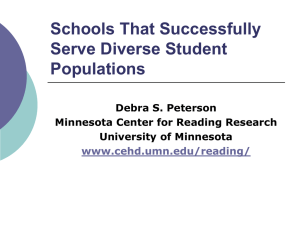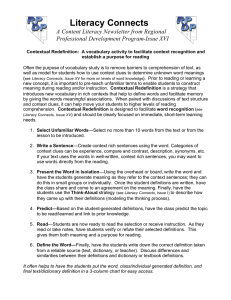Literacy Dictionary Scoring Rubric Learning reading vocabulary is
advertisement
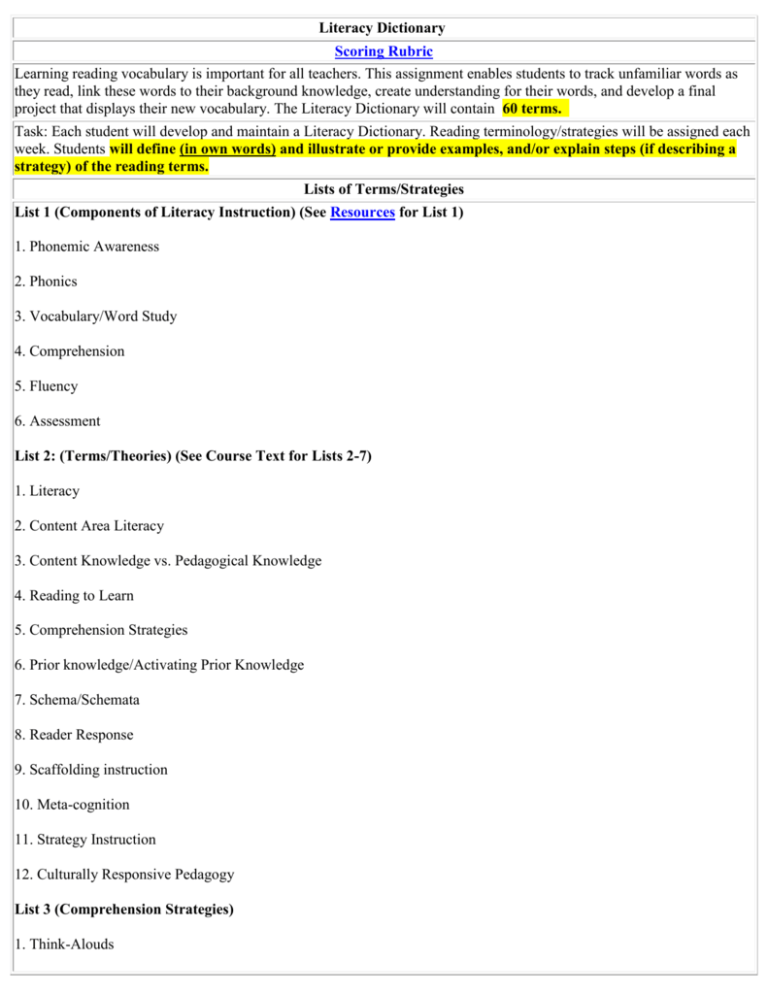
Literacy Dictionary Scoring Rubric Learning reading vocabulary is important for all teachers. This assignment enables students to track unfamiliar words as they read, link these words to their background knowledge, create understanding for their words, and develop a final project that displays their new vocabulary. The Literacy Dictionary will contain 60 terms. Task: Each student will develop and maintain a Literacy Dictionary. Reading terminology/strategies will be assigned each week. Students will define (in own words) and illustrate or provide examples, and/or explain steps (if describing a strategy) of the reading terms. Lists of Terms/Strategies List 1 (Components of Literacy Instruction) (See Resources for List 1) 1. Phonemic Awareness 2. Phonics 3. Vocabulary/Word Study 4. Comprehension 5. Fluency 6. Assessment List 2: (Terms/Theories) (See Course Text for Lists 2-7) 1. Literacy 2. Content Area Literacy 3. Content Knowledge vs. Pedagogical Knowledge 4. Reading to Learn 5. Comprehension Strategies 6. Prior knowledge/Activating Prior Knowledge 7. Schema/Schemata 8. Reader Response 9. Scaffolding instruction 10. Meta-cognition 11. Strategy Instruction 12. Culturally Responsive Pedagogy List 3 (Comprehension Strategies) 1. Think-Alouds 2. Reciprocal Teaching 3. QAR 4. QTA 5. DR-TA List 4 (Assessment) 1. Authentic Assessment 2. Time-Sample Observation 3. Portfolio Assessment 4. Rubrics and Self-Assessments 5. Comprehension Inventory 6. Readability 7. Frye Readability Graph 8. Cloze Procedure 9. FLIP Strategy. List 5 (Comprehension/Word Study Strategies) 1. Graphic Organizers 2. Concept Relationships/Concept Mapping/Concept Circles 3. Word-exploration 4. Word-sorts 5. Word Maps 6. Semantic Feature Analysis. 7. Categorization Activities 8. Context Clues, Typographic, Syntactic, and Semantic Clues 9. Word Structure (Structural Analysis) 10.Magic Squares List 6 1. Problematic Perspectives 2. Predictions 3. Anticipation Guides 4. KWL 5. Guided Discussion/Discussion Webs List 7 (Writing) 1. Writing to Learn 2. Biopoems 3. Dialogues 4. Admit/Exit Slips 5. Response Journals 6. DEJ's 7. RAFT 8. Brainstorming/Clustering 9. Writing Process/Guided Writing List 8 (Study Strategies) 1) Cornell Notes 2) GRASP 3) Text Annotations 4) Three Level Guides THE END!
